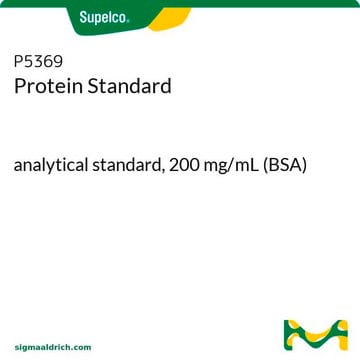P7658
Poly(D-Glu, D-Lys) hydrobromide
suitable for ligand binding assays, Mol wt 20,000-50,000
About This Item
Productos recomendados
product name
Poly(D-Glu, D-Lys) hydrobromide, D-Glu:D-Lys (6:4), mol wt 20,000-50,000
form
powder
Quality Level
feed ratio
D-Glu:D-Lys (6:4)
mol wt
20,000-50,000
technique(s)
ligand binding assay: suitable
color
white
storage temp.
−20°C
Categorías relacionadas
Analysis Note
Other Notes
Storage Class
11 - Combustible Solids
wgk_germany
WGK 3
flash_point_f
Not applicable
flash_point_c
Not applicable
ppe
Eyeshields, Gloves, type N95 (US)
Certificados de análisis (COA)
Busque Certificados de análisis (COA) introduciendo el número de lote del producto. Los números de lote se encuentran en la etiqueta del producto después de las palabras «Lot» o «Batch»
¿Ya tiene este producto?
Encuentre la documentación para los productos que ha comprado recientemente en la Biblioteca de documentos.
Artículos
Humankind has utilized protein materials throughout its existence, starting with the use of materials such as wool and silk for warmth and protection from the elements and continuing with the use of recombinant DNA techniques to synthesize proteins with unique and useful properties.
Nuestro equipo de científicos tiene experiencia en todas las áreas de investigación: Ciencias de la vida, Ciencia de los materiales, Síntesis química, Cromatografía, Analítica y muchas otras.
Póngase en contacto con el Servicio técnico![1-[2-(Trimethylsilyl)ethoxycarbonyloxy]pyrrolidin-2,5-dione](/deepweb/assets/sigmaaldrich/product/structures/315/669/b4696f8e-7012-4d38-8354-dcfd174cc558/640/b4696f8e-7012-4d38-8354-dcfd174cc558.png)








